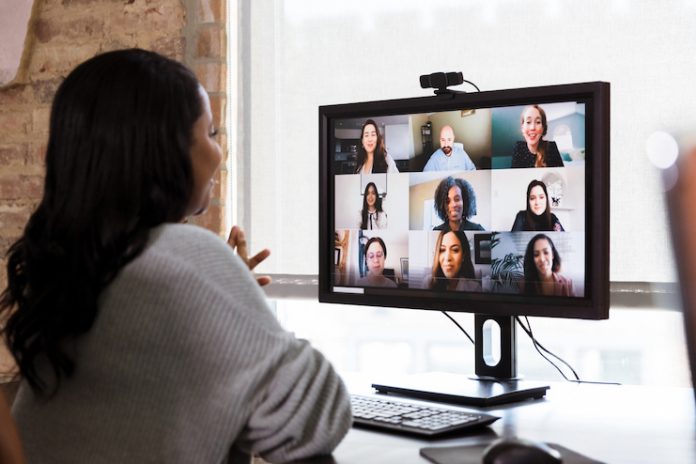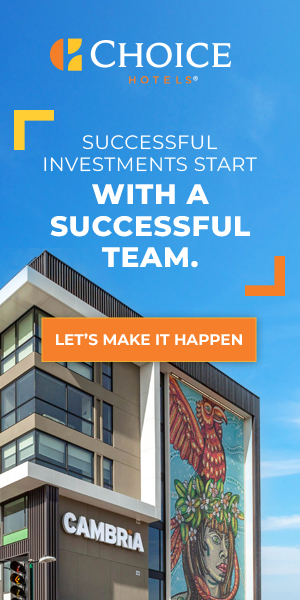On Wednesday, Castell Project, Inc., a 501(c)3 nonprofit organization dedicated to accelerating the careers of women professionals in the hospitality industry, and She Has A Deal (SHaD), a real estate investment platform that creates pathways to hotel ownership and development for women, launched Fortuna’s Table, including a new website: fortunastable.org. Named after the goddess of fortune and the personification of luck, the new endeavor provides an online community, resources, and support to allow aspiring and established entrepreneurs, particularly women and people of color who are underrepresented in the ranks of hotel ownership, to make their hotel ownership dreams a reality.
Inspired by business incubators for tech start-ups, Fortuna’s Table provides subscribers with knowledge, guidance, and community through a library of curated articles, webinars, and templates as well as “tables”—virtual collaborative discussions led by experienced hotel owners, sponsors, and experts. The subscription model is set up so that individuals can also add their business partners and teams to collaborate. Through regular virtual meetings with guides and peer mentors, subscribers are able to discuss projects and receive the push that they need to keep up their momentum. In addition, tables led by virtual experts—whether an appraiser, contractor, franchise specialist, or broker—allow subscribers to learn more in-depth about each piece of the ownership process and ask questions.
LODGING sat down with Peggy Berg, chair of Castell Project, and Tracy Prigmore, founder of SHaD and TLTsolutions, at the Americas Lodging Investment Summit (ALIS) to discuss the impetus behind this new platform, their partnership, and their shared vision of diversifying the face of hotel ownership.
When Prigmore first started attending industry investment conferences, she says she was floored by the lack of women in the room. She saw that organizations like Castell Project were dedicated to accelerating women’s hospitality careers into leadership roles, but when it came to hotel ownership and development, Prigmore noticed a gap. Drawing from her own experience becoming a hotel owner—including the challenges of identifying a mentor and finding the information needed to take on the risk of ownership—Prigmore sought to create a forum for aspiring hotel owners to connect and collaborate with each other. That led her to launch She Has a Deal, which includes a pitch competition that results in deal equity for the winners. Following the first SHaD event, which took place virtually in March 2020, Berg reached out to Prigmore to see if their two organizations could collaborate to make hotel ownership more diverse.
“We thought that it would be phenomenal if the two organizations came together to help further close that gap,” Prigmore explains. “We wanted to build this knowledge network that would catapult women on their journey to hotel ownership.”
The two met weekly to build their vision of a knowledge network, including completing a testing period with 30 participants. Prigmore and Berg worked with the Advanced Technology Development Center (ATDC), a startup incubator at Georgia Tech, to understand how to incubate small businesses and where entrepreneurs get hung up. What they found is that entrepreneurs need community, mentorship, and knowledge to put their aspirations into a plan of action and follow through.
To build a community of experts and supporters for Fortuna’s Table, Berg and Prigmore reached out to hotel brands, lenders, consultants, operators, and others in the industry. Sponsors and supporters include major brands and companies like Hilton, Accor, IHG, Marriott, Hyatt, Wyndham, Sonesta, G6, Radisson, Choice, Best Western, Premier Capital, and HotelAVE. In many cases, individuals from these companies lend expertise in their respective areas to help potential owners navigate such topics as how to structure an investment, financing, appraising an asset, and more.
The platform will continue to expand on these and other topic areas to build a robust knowledge center for both aspiring and experienced entrepreneurs who are looking to diversify assets and build wealth through hotel ownership. For those less experienced with entrepreneurship, such as corporate professionals, a half-day virtual workshop is designed to review what’s involved and overcome initial obstacles in that transition.
“For someone who’s been a general manager for a long time and always wondered if they could cross over to ownership; for someone who’s been an investor and wondered if they could do more themselves; for someone who’s been in residential real estate and wondered how to get to a larger scale, we think that this tool will help them keep their ideas moving and get their questions answered so they don’t get stuck,” Berg explains.
Prigmore adds that Fortuna’s Table provides a space where those who are self-studying and getting themselves up to speed on all that is involved in hotel ownership can feel comfortable asking questions. “What we hope that we’re doing for the industry is creating more diversity and inclusion by attracting people who wouldn’t necessarily step into hospitality because of the intimidation factor or not knowing where to start or who to talk to,” Prigmore says. “As they go through the process with Fortuna’s Table, participating in expert tables and with guide tables, they’re more ready to have meaningful conversations with brands, management companies, and lenders as they start to move forward on their project.”
There is a moment both Prigmore and Berg describe when one’s mindset shifts and they realize they, too, can become a hotel owner. “I very clearly remember the moment where I was looking at a hotel with a client as a consultant and I thought, ‘I could do this.’ I owned that hotel about three months later,” Berg recalls. “We’d like to make that ‘I can do this’ moment a little more accessible.”
Prigmore adds that she has spoken with women through Fortuna’s Table who have been in the hospitality industry for their entire careers and had thought about ownership but never saw it as a feasible pathway for them. She says the key is not only realizing, “I can do this,” but having the support of a community through the process. “It’s really helping to accelerate the knowledge and build the confidence of the women who come to the table.”













